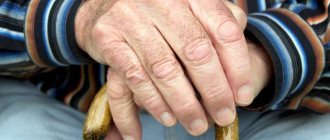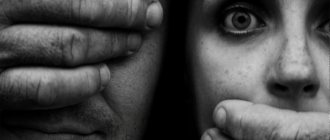Greetings, friends!
If you are wondering: how to stop being sad, then I understand you perfectly. This feeling occurs periodically in each of us, regardless of gender and age. However, there is good news - you can overcome this feeling on your own, you just need to put in a little effort. How to do it? Today we will look at the best ways to help cope with this problem, and some of them will definitely suit you! But to make the effect even stronger, let's start in order: let's figure out what sadness is and why does this feeling arise?
"Covid fog"
“I suffered from coronavirus in a mild form, the temperature did not rise above 37.8 degrees,” says 35-year-old Natalya.
— At the beginning of the disease, the sensations were similar to the symptoms of a regular ARVI. But then something began to happen to your head: you seem to live in a fog. You don’t want to think about anything, do anything. It took me more than two months to get out of this state.” 44-year-old economist Alexey, who also recovered from coronavirus relatively easily, also complains of apathy: “I plunged into cat life for two weeks. You wake up, eat a little, then fall into a stupor and fall asleep without noticing. And so around the clock. You can’t remember anything in your head, you don’t remember any important things. Then it gradually began to pass, but I didn’t have the strength to engage in any intellectual activity for a long time.”
But 49-year-old Svetlana, who was hospitalized due to bilateral pneumonia, had to face other consequences. For three months after discharge, she suffered from insomnia and anxiety, and in the short intervals when she managed to fall asleep, she suffered from nightmares. As a result, the woman had to turn to a psychiatrist for help.
Photo © Pixabay
Experts drew attention to such consequences after the first wave of the pandemic. Today, according to researchers, more than a third of those who have recovered from coronavirus experience negative mental consequences to one degree or another. The range of disorders is very wide: from apathy to prolonged depression, panic attacks and memory problems. Doctors also discovered dependence: the more severe the illness, the more serious the psychological consequences.
“In general, it is very difficult to talk about any clear impact of coronavirus on the human psyche,” says Nikolai Starostin, a psychiatrist at a private St. Petersburg clinic. - For two reasons. Firstly, we still do not know exactly how the mechanism of the virus’s influence on the human mental apparatus works. There are already quite a lot of different studies, but they are still at the stage of discussion in the scientific community. We understand that this is clearly influenced by vascular damage: after all, they are the main target of the virus. But this knowledge is not yet enough to draw clear conclusions.”
Psychiatrists point out that the mental health problem associated with COVID-19 is much broader than just the effect of the virus on the human body. We can say that its effect on the human psyche begins much earlier than it enters the body.
Filling the void
The psychological technique of right and wrong questions described above does not always work. Especially when you are tormented by despondency and sadness from the loss of a loved one. In such a situation, a technique for filling the void that is formed with loss will help.
Previously, we shared joy and sorrow with him, walked and traveled together, helped each other, understood each other perfectly. When he disappears, the ideal world that was held together by two collapses. Unbearable loneliness hits you headlong. There is nowhere to go, no one to talk to, no one wants to see, no one can understand.
You can get rid of the feeling of loneliness only by gradually filling the resulting emptiness. Psychologists immediately warn: alcohol, drugs, dubious companies, daily parties - all these are pseudo-pleasures that allow you to forget only for a while. They should be abandoned immediately.
What can you do to fill the void?
- go on a trip: psychologists say that new positive emotions and a change of environment are the best way to get rid of melancholy;
- find a pleasant company, don’t be alone, try to constantly be with someone who is nice, unobtrusive and not annoying;
- do what you like: hobbies, sports, volunteering and other things that will bring satisfaction;
- throw yourself into work so that there is no extra time left for longing for the past;
- to care for someone: a child, an old person, a pet, a sick or suffering person.
The main thing is not to feel guilty before the deceased person, as if you are betraying him by continuing to live. This technique works slowly but surely. It can also be used in cases where hopelessness and sadness are associated with other events: separation, loneliness, a feeling of uselessness, etc.
Anxious expectations
Already in the first wave of the pandemic in 2021, psychiatrists drew attention to changes in the mental health of the population. Lockdowns, other coronavirus restrictions, remote work, a person constantly being at home - all this has already provoked negative psychological effects. Add to this anxious expectations - fear of becoming seriously ill, fear for loved ones, the possibility of losing a job - and here it is, a set that places a heavy burden on the human psyche.
At the same time, some researchers have started talking about the increase in suicidal and depressive feelings among completely healthy citizens in different countries of the world. Moreover, data began to appear about increasing cases of domestic violence and divorce.
Photo © Pixabay
When a person gets sick, his anxious expectations intensify. The patient begins to monitor his condition, symptoms, temperature, and breathing with fear. No one wants to end up in a hospital under strict quarantine. Even more fears are caused by the possibility of developing severe complications, the use of ventilators and other procedures. Now doctors already know that the most severe psychological consequences occur precisely in patients who have undergone artificial ventilation.
How does the virus work?
But the causes of post-Covid mental disorders are not only fears for one’s life. Here the actual factors of the disease begin to play a role. Lack of oxygen in the body also leads to poor supply to the brain. This effect can lead to a variety of consequences for the nervous system.
According to a study by Italian doctors published in the journal Brain, Behavior and Immunity, 55% of patients who recovered from Covid experienced some kind of mental problems. Scientists who surveyed 402 people associate them with hormonal imbalances, which are provoked by the immune system resisting the virus. Another reason for negative mental consequences is the severe stress that the patient’s body experiences.
A subsequent study of the psyche of patients who had COVID-19 corrected the data of Italian specialists. Thus, a group of researchers from the USA and Great Britain received less pessimistic results. After a large-scale study of the medical histories of more than 230 thousand people, scientists said that only 34% of Covid survivors complained of anxiety and personality disorder within six months.
HELP OF PROFESSIONALS
If our advice did not help you and your mood stubbornly refuses to lift, perhaps it’s time to think about professional help. Consulting with a psychologist will help you look at this world differently. "If you can't change the situation, change your attitude." Specialists will determine which treatment method to help you with. Perhaps it will be cognitive behavioral therapy. It helps you focus on what is happening around you and distracts you from the problem. Or perhaps it will be drug therapy. Your doctor may prescribe antidepressants for you. However, do not try to prescribe medication for yourself. Trust a professional. He himself will determine which tablets will help you in your case and what dosage to take them. On your own, you can only harm yourself.
Listen to your health, physical and mental. Do not let dullness and despondency into your life. Stay positive. And good mood to you!!!
Covid as trauma
Specialists from the National Medical Research Center named after. V. M. Bekhterev believes that after COVID-19, patients experience symptoms characteristic of the so-called post-traumatic stress disorder (PTSD).
PTSD is a mental disorder that occurs after events that have a traumatic effect on the individual’s psyche. At the same time, the traumatic nature of the events that occurred is associated with a person’s feeling of helplessness, the inability to influence what is happening, and to resist danger. Characteristic symptoms of PTSD include flashbacks, nightmares, partial amnesia, emotional instability and panic attacks. These manifestations can occur not only immediately after a traumatic event, but also months and even years later.
PTSD is well known to psychiatrists - this disorder can occur after any event that traumatizes the individual’s psyche. And Covid may well be one of them.
Photo © Pixabay
Causes and essence of melancholy
Melancholy arises from feelings of loneliness, abandonment, loss, misunderstanding, inability to talk, to share one’s views.
Sometimes it seems that melancholy appears for no reason, we are “just sad,” but in fact at this moment we feel lonely, misunderstood, unaccepted, unloved, unfulfilled, unhappy, dissatisfied. We feel that we do not have something very desirable. “I miss those times,” “I miss you,” we say. But in fact, we yearn for our comfort, peace of mind, and well-being. Probably, in those times and with that person, our best moments of understanding and happiness passed.
"Side effect"
Another factor is the side effects of medications used to treat COVID-19. For example, glucocorticosteroids (GCS) are widely used in modern anti-Covid therapy. They are often prescribed in high doses and for a fairly long period. But at the same time, GCS can cause hallucinations, delusional states, depression and even manic-depressive states and paranoia. Taking other medications used in the treatment of Covid, for example, some antiviral drugs, also has a negative impact on the psyche.
What is sadness?
Sadness is a negative emotion that arises as a result of dissatisfaction with one or more areas of life, the current state of affairs, as well as past events or future forecasts. Outwardly, this feeling manifests itself in a depressed mood, a reluctance to do anything, and also to communicate with others. Usually we don’t even think about how to stop being sad and quickly get back on track, but simply wait out this state. And fleeting melancholy passes by itself, allowing us to enjoy pleasant events again.
But sometimes it comes to a severe form of sadness, which knocks a person out of normal life for a long time, preventing him from working effectively and doing everyday activities. In this case, you should not hesitate - you need to pull yourself together and try to correct the situation by trying one or more methods that we will talk about today.
Post-Covid syndrome?
The entire diverse set of consequences in people who have survived a new coronavirus infection has already been called “post-COVID-19 syndrome.” Among its symptoms are mental disorders that are already well known to us: “fog in the head,” disorientation in space, panic attacks and cognitive disorders. However, some researchers say that mental problems in Covid survivors are not unique consequences of the new disease, but complications that cause any severe infectious disease.
So, back in 2021, an article appeared in the authoritative medical journal The Lancet, which analyzed 72 studies of the consequences of epidemics - the predecessors of COVID-19 - SARS-1 and MERS viruses. Mental disorders in those who recovered from these infections turned out to be identical: confusion, depressed mood, anxiety, memory impairment, insomnia and even delirium. Thus, we can draw a preliminary conclusion: the COVID-19 virus does not necessarily have any unique properties that affect the psyche.
Photo © Pixabay










